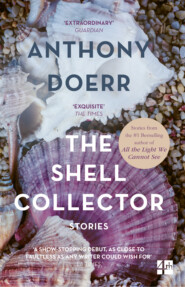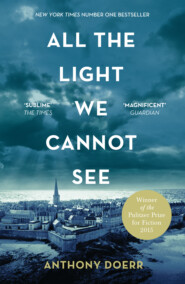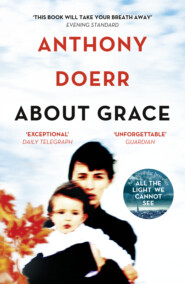По всем вопросам обращайтесь на: info@litportal.ru
(©) 2003-2024.
✖
Four Seasons in Rome: On Twins, Insomnia and the Biggest Funeral in the History of the World
Настройки чтения
Размер шрифта
Высота строк
Поля
Supposedly, while performing the crucial calculations in his theory of general relativity, Einstein slept ten hours a night.
(#litres_trial_promo) I struggle to get five. Here’s a headline from the newspaper: Marriage and Children Kill Creativity in Men? Two-thirds of “great” male scientists, reports some evolutionary psychologist in New Zealand, made their most significant contributions before their mid-thirties and before starting a family.
(#litres_trial_promo) Wonderful. Here’s Einstein himself: “A person who has not made his great contribution to science before the age of thirty will never do so.” What if all this is true, I wonder, for male writers?
I’m thirty-one. Here’s Coleridge, in 1804, when he turned thirty-two: “Yesterday was my Birth Day. So completely has a whole year passed, with scarcely the fruits of a month.—O Sorrow and Shame…I have done nothing!”
I haven’t finished a piece of fiction since the boys were born. I want to write about the French radio resistance, but can’t speak French, have never operated an old radio, and can’t imagine how a Frenchman might talk in 1940, or even what he might carry in his pockets. When I look at copies of my first two books, even the novel published last month, they seem like strange and reticent objects; the paragraphs feel as though a lost brother has written them, a brother with much more time on his hands.
And now there’s Rome, beginning to seep into everything, flooding my notebooks: the slumbering palaces, the hallucinatory light. I never tire of the clouds here, I’ve written across the top of a sheet of paper, the light bleeding through their shoulders.
Or this: Through a window in Monteverde: a ladle smokes on a butcher’s block.
Yesterday I scribbled this: Crossing the Ponte Sisto, over the Tiber, the air fills with shining threads, I wave my hands, squint. Is the light itself separating? For a minute I watch, the babies squirming in the stroller. Then I realize: They are spiderwebs, a tiny spider dangling from the end of each, all of them ballooning downriver.
Every time I turn around here, I witness a miracle: wisteria pours up walls; slices of sky show through the high arches of a bell tower; water leaks nonstop from the spouts of a half-sunken marble boat in the Piazza di Spagna. A church floor looks soft as flesh; the skin from a ball of mozzarella cheese tastes rich enough to change my life. I ought to be reading about Vichy, collaborators and resisters, the albatross of military occupation. Instead I sit in the studio, open Pliny the Elder’s Natural History for the first time, and read passages at random. “When the collapse of a building is imminent,” he writes, “the mice migrate in advance, and spiders with their webs are the first things to fall.” I flip forward a few hundred pages: “Athletes when sluggish are revitalized by love-making,”
(#litres_trial_promo) he claims, “and the voice is restored from being gruff and husky. Sexual intercourse cures pain in the lower regions, impaired vision, unsoundness of mind and depression.”
(#litres_trial_promo)
How can fiction compete with this guy? I carry a notebook to the roof of the Academy and try only to explain the complexion of stones, the distant blues of the Alban Hills, the lines of landscape.
The gaze widens and drifts; the eye is insatiable. The brain drowns.
We interview another babysitter, an Australian girl who says she is here in Rome “to party.” Then we hire Tacy. She arrives the next afternoon and says she’ll watch the babies for as many hours as we need. Shauna and I descend into the city clutching the address of a children’s store. We walk miles, get lost twice. We ascend an artery called via Nazionale, an infinity of silk shirts and shoe shops, plunging staircases on our right, mannequin after mannequin modeling in windows. Energy pours off the traffic, off the sidewalks; it feels as if we are pumping through the interior of a living cell, mitochondria careering around, charged ions bouncing off membranes, everything arranging and rearranging.
Here is a pair of stone lions with crossed paws; here is a Gypsy sleeping on a square of cardboard. Down the white throat of a street a church floats atop stairs. A town car slows beside us, a gloved hand on the wheel, red lace in the backseat, a Siamese cat on the rear window ledge. Outside a hotel, a man with a bellows camera on a tripod ignites his flashbulb.
How old it all seems! And how new!—centuries bursting past in flashes, generations pouring along the streets like tides, old women, baby carriages, Caesars, popes, Mussolini—time is a bright scarf rippling past our eyes, columns rearing and toppling, temples rising and silting over and rising again.
We share a piece of pizza con funghi so full of flavor it forces our eyes closed: the oil in the crust tastes like sun and wind; then there is the salty cheese, and the deep-woods taste of oyster mushrooms.
It’s dark when we find the children’s store. Everything is very nice and very expensive. They have one backpack baby-carrier and one playpen in stock. We spend too much on both, carry them into the street, and climb into a taxi to go home.
Piazza Venezia rattles toward us on the left, the hub of Rome, no traffic lights, buses swarming round pedestrians, a policeman on a box orchestrating everything with white gloves. The soaring marble ledges of the Victor Emmanuel II Monument—the Vittoriano, Altar of the Fatherland, a colossal cascade of marble platforms—loom above us, ten thousand tons of botticino limestone. Fifty or sixty gulls ride the wind above the chariots on its roof, three hundred feet above the street. They turn slow circles in the spotlights, never lowering their wings. Ghosts, or angels.
Not until we’re back in our apartment building, riding the elevator, do we realize we only know Tacy’s first name and her cell phone number.
The stairwell is dark. The apartment door is locked. My heart disintegrates in my chest. We will never see our sons again. I will have to talk to uninterested police captains; I will have to learn the Italian word for abduction. I will carry Henry’s pacifier in my pocket for the rest of my anemic, broken life. I will have to tell my mother, “Well, we found her on the Internet…”
Shauna slides her key into the lock. We creep down the hall. The boys are sitting on a blanket on the floor with their toys. They smile at us. Tacy smiles. Everything—the little round table, the counters, the bottles in the sink—has been cleaned.
October wanes. We have lived in Italy almost a month. At the Palazzo Senatorio, a twelfth-century palace in the Campidoglio, right next to the Vittoriano, six hundred dignitaries stand in their dark suits and listen to each other endorse the constitution of the European Union. Five thousand security people; two tractor trailers stuffed with flowers. In the afternoon two stretched-out BMWs race past us on the street, each escorted by three police sedans, sirens turning, black windows flashing past.
Pomp, power, importance. I sit in the Tom Andrews Studio and read chapter after chapter of Pliny’s Natural History. He is half-genius, half-lunatic. It is as though Borges has rewritten Aristotle, patched in some Thoreau, then airmailed it to Calvino to revise.
Pliny the Elder was born in AD 23; he became a cavalry officer, then commander of an entire army. He was chubby, fond of baths, hardly slept. By age thirty-six, he’d completed three works: a treatise on how to throw spears from horseback, a biography of a friend, and a history of the Germanic wars in twenty volumes. But the Natural History was his magnum opus and is his only extant work. Completed in AD 77, it consists of thirty-seven separate books and addresses everything from geography to crystallography to the ability of hyenas to spontaneously change their gender. His subject is the universe, from stars all the way down to polyps, and ultimately what the Natural History presents is a panorama of an ancient world crawling with myth and misinformation, but also elegant and ordered and deeply beautiful.
The more pages I turn, the more I find an endearing sweetness in Pliny; he is so curious, so ardent. The elephant’s “natural gentleness toward those not so strong as itself,” he writes, “is so great that if it gets among a flock of sheep it will remove with its trunk those that come in its way, so as not unwittingly to crush one.”
(#litres_trial_promo)
Later he marvels, “Where did Nature find a place in a flea for all the senses?”
(#litres_trial_promo)
I descend into the Academy library, find the complete Natural History translated and unabridged, and borrow as many volumes as I can carry.
For Halloween we dress the boys as a lion and a dog and stroll them to the Piazza Navona, an elongated oval in the center of the city packed with cafés and fountains. The streets swirl with light. Shadows flicker and waver like candle flames; the sides of houses, caught by the sun, glow like embers. Crows (all black like American crows, except Italian ones have gray on their backs, as if they wear a sweater tied around their necks) hop through the piazza and pick through blowing trash. All through the historic center, even though it’s eighty degrees, Romans model leather coats. We sit on a stair outside an apartment; Shauna unzips her backpack and mixes our last two bottles of American baby formula. Shutters bang and the engine noise of the city rinses everything else away.
All week I try to force myself to set aside Pliny and fiddle with scraps of my novel. I spend a half hour changing a character’s name across four pages of text, then finish out the hour by changing it back to the original name. Each morning the ice that has formed over my draft feels thicker, my initial enthusiasm fainter. Reality subsumes fiction; how can I write about France in the 1940s when the countless faces of Rome (in our 2004, in Pliny’s 77) swarm all around me? The brittle crust of the present fractures; my feet sink into the quicksand of antiquity.
By noon I’m reading Pliny again. He is self-deprecating; he is scrutinizing things no previous Roman writer had ever paid much attention to: centipedes, pinecones, ravens. In his world comets, eclipses, thunderclaps, birds, fish, spiders, fig trees, natural springs, sneezes, and stumbles portend events;
(#litres_trial_promo) honey comes from air, butterflies are born from dew, cranes regularly assemble to hold symposiums,
(#litres_trial_promo) and moles tunneling beneath houses can understand what is being said above them.
(#litres_trial_promo) Lightning bolts make catfish drowsy,
(#litres_trial_promo) horses will burst open if they are ridden across wolf tracks, and dolphins “answer to the name of ‘Snubnose’ and like it better than any other.”
(#litres_trial_promo)
But Pliny can be sweetly, perfectly astute, too. “Whales,” he writes, “have their mouths in their foreheads and consequently when swimming on the surface of the water they blow clouds of spray into the air.”
(#litres_trial_promo) He understands the earth is spherical; he carefully traces how daylight varies with latitude. And, fifteen hundred years before the invention of the microscope, he manages to make some sublime observations about insects, bees in particular.
Read a certain way, the Natural History is preposterous, full of erroneous assumptions and cast-off mythology. Read another way, it is a window into Roman understanding two millennia ago. Read another way, it is a tribute to wonder itself.
For the past sixteen years, pretty much every single day, I’ve penciled a journal entry into a spiral notebook. It is a practice field, an exercise bike; I write in it to try to stay in writing shape. In Boise, most mornings, I sit over a blank page and squeeze out a paragraph, then start writing fiction. During this first month in Italy, I sit down and two hours disappear and I’ve filled five pages.
I write in my notebooks, change diapers, buy groceries. I fry pancetta with a child strapped to my back. I conduct a phone interview with the Washington Post with a child strapped to my chest. By the time we bathe the boys, fight them into pajamas, and pile them into their cribs, it is usually seven thirty or eight. We cook dinner. We read. We go to bed. Twenty minutes later Shauna is asleep. I am not. I read about drool rash online, I try to decipher ingredients in Italian baby formula. Idrolisato di caseina. Minerali enzimatici. Are these good things to put into an infant?
I wander on and off the terrace, I try drawing pictures of trees in a notepad. On the National Sleep Foundation website I read, “In the long term, the clinical consequences of sleep deprivation are associated with numerous, serious medical illnesses, including…high blood pressure, heart attack, heart failure, stroke, psychiatric problems, mental impairment, and poor quality of life.”
(#litres_trial_promo)
A bundle of marguerites, tied with black ribbon and leaning against the corner of the Porta San Pancrazio, has wilted and fallen to the pavement. I pick up the bouquet and reposition it against the stone, but it falls again, and I worry the drivers in the cars whizzing past will think I’m being disrespectful so I take the brake off the stroller and hurry home with the milk.
Saint Pancratius: fourteen years old when he was martyred. His job in heaven is to avenge perjurers.
It’s the second of November, election day in the United States. Around noon a sudden wind slams my studio door and I hear the little framed sign (The Tom Andrews Studio, Fellow, American Academy in Rome ’00) shatter on the tile in the hall. I open the door and pile slivers of glass into the trash can thinking, Omen. Pliny whispers in my ear, “Different days pass verdict on different men and only the last day a final verdict on all men; and consequently no day is to be trusted.”
(#litres_trial_promo)
An hour later my editor e-mails to tell me the New York Times will run a halfhearted review of my newly published novel on Sunday that includes the sentence “Doerr’s interest in nature is so obsessive that the whole equation of man in nature becomes heavily skewed in favor of the latter, producing fiction of rapturous beauty but of an oddly cold, uninvolving nature, as if it were embalmed in its own lustrous style.”









